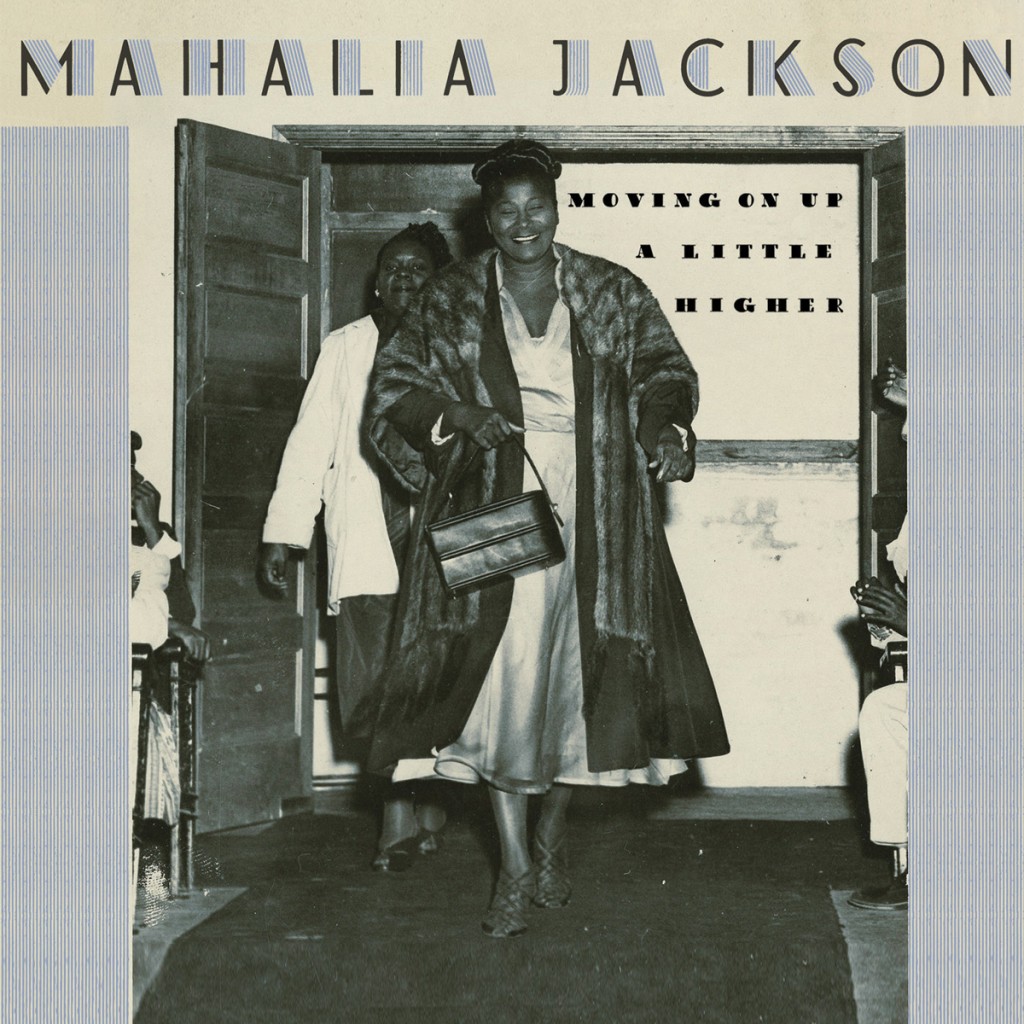By the time Mahalia Jackson signed with Columbia Records in 1954, the New Orleans native had been a gospel star for six years. 44 years after her death, she’s still regarded as gospel’s greatest artist. Moving on Up a Little Higher, a new collection of Jackson’s in-performance and rehearsal recordings, offers more evidence of her gifts.
 Jackson’s 1948 single, “Move On Up a Little Higher,” became the best-selling gospel record up to that time. By the early 1950s, she was famous in Europe, too. By 1954, she had her own CBS gospel radio program and a contract with Columbia Records.
Jackson’s 1948 single, “Move On Up a Little Higher,” became the best-selling gospel record up to that time. By the early 1950s, she was famous in Europe, too. By 1954, she had her own CBS gospel radio program and a contract with Columbia Records.
Jackson’s Columbia recordings cast her in pop-friendly productions featuring choruses and orchestras. But there’s no studio sheen in the 22 non-studio performances on Moving On Up a Little Higher. Jackson is heard in gloriously expressive form. Eleven of the performances are from the William Russell Jazz Collection, which is housed at the Historic New Orleans Collection. 9 performances are from the 1957 Newport Jazz Festival.
The Newport recordings and the rehearsals Russell recorded at Jackson’s home in Chicago offer the collection’s best audio quality. Jackson sings most of rehearsals a cappella. Her rich contralto, heard without accompaniment, is even more obviously than usual a magnificent instrument.
Jackson’s blues influences, especially early blues star Bessie Smith, color this collection. She transforms the sacred through the secular, enhancing her crossover appeal. The singer’s blues-touched gospel made her the ideal act for George Wein’s Newport Jazz Festival. Accompanied by pianist Mildred Falls and organist Dickie Mitchell, the 44-year-old singer made her Newport debut in 1957 as a headliner. For “Keep Your Hand on the Plow,” “When the Saints Go Marching In,” “Didn’t It Rain” and more, Jackson’s singing and shouting, her conviction, sound too much for headphones or speakers to contain. And her Newport performance of “Jesus Met the Woman at the Well” sounds every bit as commercial as one of the era’s Ray Charles recordings.
Many Moving On Up a Little Higher tracks capture Jackson in her prime gospel glory.



